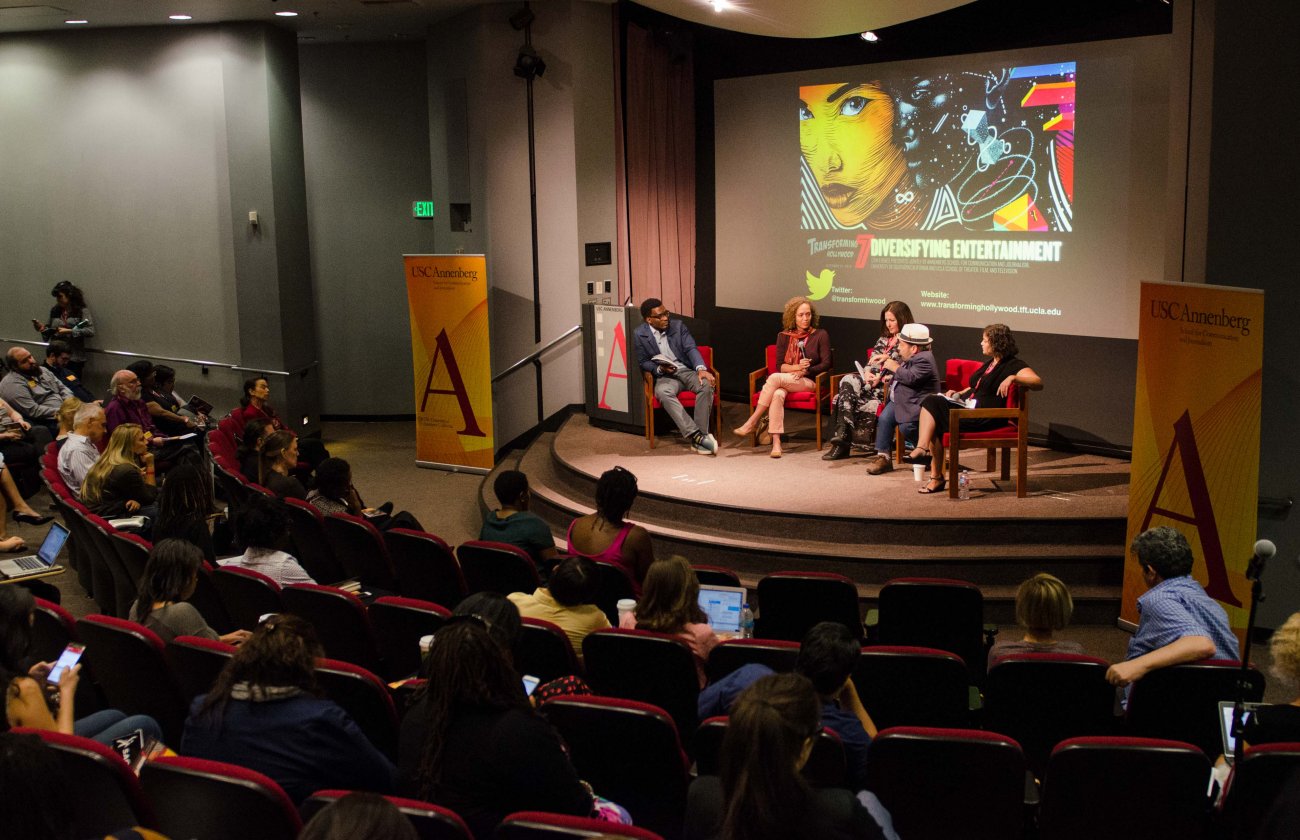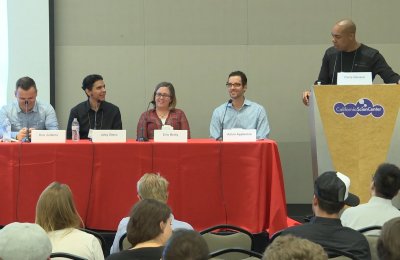The USC Annenberg Innovation Lab has released three new reports that aim to serve as teaching and learning guides for K-12 teachers and administrators who want to develop more participatory learning approaches in classrooms.
The guides share insights and lessons gleaned from a yearlong project working with Los Angeles public school teachers and also from an interdisciplinary working group of researchers, teachers and administrators from several states. The reports are the follow up to Provost's Professor of Communication, Journalism and Cinematic Arts Henry Jenkins’ landmark 2006 white paper: Confronting the Challenges of a Participatory Culture, which outlined the challenges facing educators in a new media world filled with students who are engaged participants instead of passive observers.
The reports’ research, led by USC Annenberg researcher Erin Reilly, delves into the rich media landscape that has continued to evolve over the last six years, as well as the progress that has been made in developing participatory learning.
With funding provided by the Bill & Melinda Gates Foundation and the Digital Media and Learning Research Hub, the reports are:
- Designing with Teachers: Participatory Approaches to Professional Development. Features case studies of innovative professional development initiatives (Vital Signs, PLAY, Scratch, Ask Ansai, the Participatory Assessment Project), with a larger exploration of what it might mean to adopt a more participatory model for designing with teachers. Outlines four core values and seven design principles that shape new models of participatory professional development.
- Shall we PLAY?: Culled from work with LAUSD elementary and secondary teachers and makes a case for focusing on media rather than technology, as media is a form of communication that permeates society while technology is a tool. Highlights developments in the Digital Media and Learning movement since 2006, as Jenkins, Reilly and their team have sought to bring a more participatory spirit to the institutions that most directly affect students’ lives. Outlines the four “C’s” of participation: create, circulate, collaborate and connect.
- PLAY! Participatory Learning and You: Defines the five core principles for participatory learning: 1) Participants have many chances to exercise creativity through diverse media, tools, and practices; 2) Participants adopt an ethos of co-learning, respecting each person’s skills and knowledge; 3) Participants experience heightened motivation and engagement through meaningful play; 4) Activities feel relevant to the learners’ identities and interests; 5) An integrated learning system - or learning ecosystem - honors rich connections between home, school, community and world. The report also lays out the challenges of incorporating the principles.
“The reports are really about defining PLAY! as experimentation with surroundings as a form of problem solving, as embodying learning. It’s not about lecturing.,” Reilly said. “Adults that surround the child need to consider themselves mentors or guides – a guide for teaching and learning anytime, anywhere.”
The reports were authored by Reilly, Jenkins, Iona Literat, Laurel Felt and Vanessa Vartabedian.
Designing with Teachers: Participatory Approaches to Professional Development








